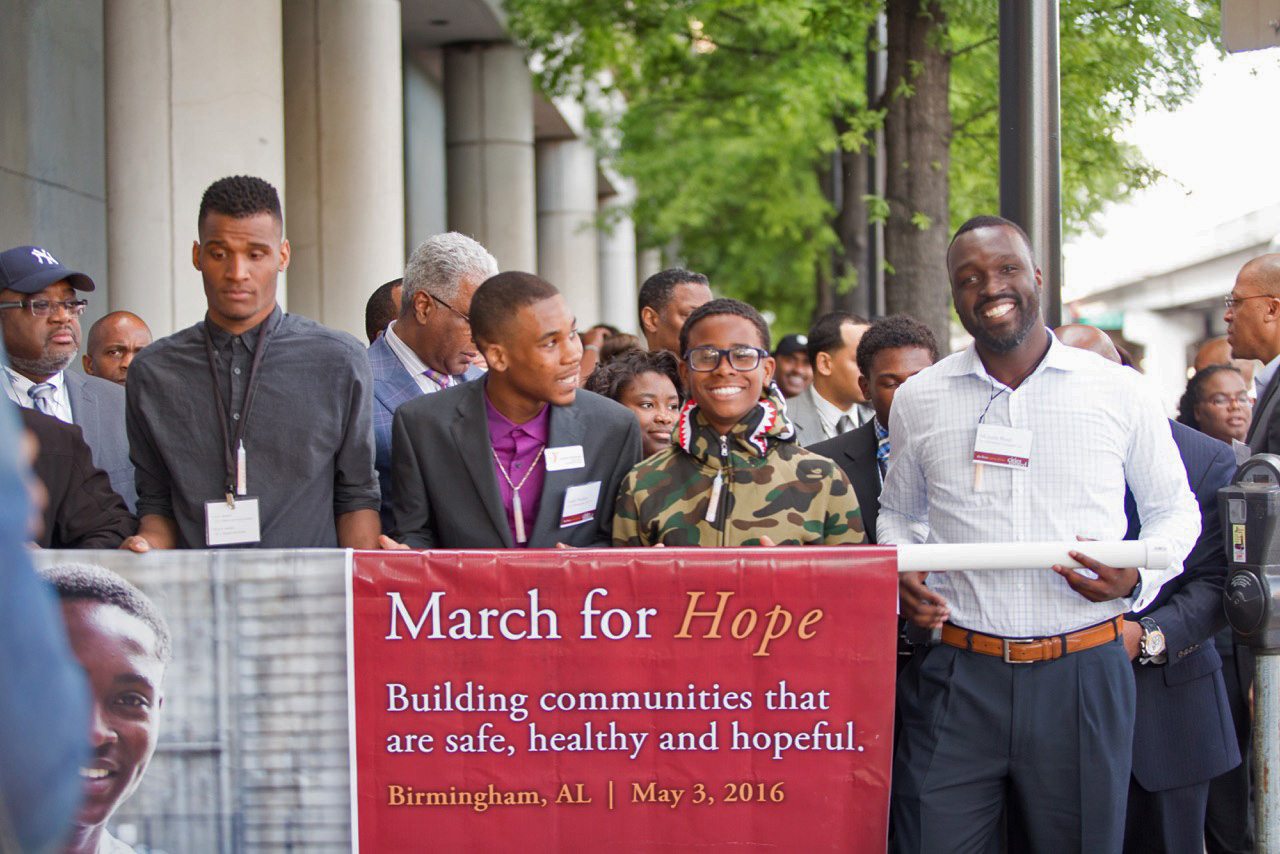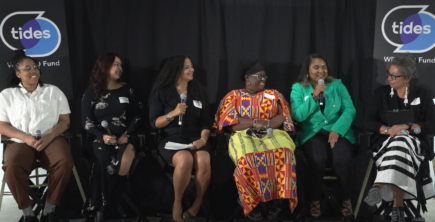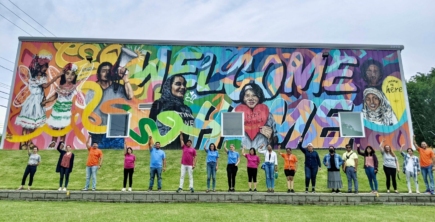
Crisis Response Fund

Cities United, photo by Twenty Twenty Visionary
Irini Neofotistos is a Senior Advisor at Tides, where she’s been working since 2014 to help Tides’ partners create daring change.
You work with a variety of Tides partners who are committed and dynamic. Can you tell us about one partner who is taking on truly daring work?
Yes! Cities United is committed to cutting homicide rates for young black men and boys in half by 2025. It supports a national network of mayors who are working with their communities to implement comprehensive public safety plans in pursuit of this goal.

In cities of all sizes and regions, CU helps mayors educate themselves about a wide range of subjects – including justice, safety, employment, education, and housing – and how they’re all interrelated. CU created a toolkit, the Roadmap to Safe, Healthy, and Hopeful Communities, to help with the process, and offers technical assistance as well. Because of its broad experience in the field, it can also provide examples of successes from other cities that can inform new paths forward.
All of CU’s plans bring philanthropy, local municipalities, community partners, youth and families, and corporate support to the table, incorporating their ideas and feedback from start to finish. It’s consistent with Tides’ multi-stakeholder approach to solving complex and pressing social justice issues.
CU pulls in the expertise of key partners who are steeped in this work: the African-American Mayors Association, the Association of Black Foundation Executives, the Campaign for Black Male Achievement, and the City of Birmingham, to name a few. City mayors sit on the advisory board to help develop approaches that they know will help others in their shoes. It’s that all-hands-on-deck approach that I love – and the most beautiful thing is that solutions are developed by the folks who are the most impacted by the issues at hand. That empathy speaks volumes.
This partner is so exciting for me not only because of its mission and approach, but also because of the growth I’ve been privileged to witness and support. CU identified Tides as a partner and became a pilot project in 2015; today, after years of progress and change, it continues to establish itself and grow its programs towards its mission. I offer hands-on and strategic assistance along the way, working on everything from hiring its first Director to vetting hotel agreements for events to managing grant proposals and reports. At a higher level, I help think through how to structure CU’s offerings and operations as it grows.
How do you, in your role at Tides, help accelerate daring change?
A key part of my partnerships is trust. I strive to create relationships in which others can say “I want to do this, but I don’t understand it fully. Help me figure out how to approach it.” With that level of honesty, I can leverage everything possible at Tides to really dig in and problem solve, knowing that our partners aren’t afraid to admit their pain points. Together, we can explore options and solutions that speak directly to their evolving needs. We can provide perspectives that they may not be able to leverage solely within their internal staff.
Another thing that I’m passionate about is helping set our partners up for success by building the necessary systems up front. No one wants to prioritize thinking about things like staffing, structure, or financial management, but they’re all important from the outset. I have seen many organizations avoid dealing with potential problems, only to be thrown into crisis mode when they least expect it – and at that point, there’s no time to be methodical or thoughtful. Tides’ expertise helps our partners with everything I just mentioned, in addition to legal advice, operations, and so many other areas that directly impact effectiveness. People don’t always walk into their roles in this field fully understanding what’s required for success, but we can use the breadth of our experience to help them plan for their unique goals, as well as potential challenges.
One more key part of my role, which pulls in both the trust and systems-building pieces, is helping organizations deal with transition: beginning new programs, helping more mature ones evolve, and equipping organizations all along the growth spectrum to adjust to external stresses. I help partners think through building capacity by creating milestones against their goals and considering partnerships and other resources that will help move them forward. Shifts in the political climate, developments in the philanthropic field, and internal changes can all create conflict for our partners – but, if they’re dealt with in the right way, they can make a organization stronger in the end.
A key part of my partnerships is trust. I strive to create relationships in which others can say “I want to do this, but I don’t understand it fully. Help me figure out how to approach it.” With that level of honesty, I can leverage everything possible at Tides to really dig in and problem solve.
How does Tides, as an organization, accelerate daring change in its relationships with partners?
As we push our partners to take bold steps toward their missions, we’re doing the same ourselves. That gives us a window into what their processes are like, and the results help us do more for them. Over the past three years, Tides has been looking inward as an organization and shifting our staffing model, systems, and perspective in order to be more effective. That helps us guide our partners to do the same. We’ve moved from more of a back-office support model to a truly integrated, dynamic partnership model. We’re active, not passive; we have a vision and a voice, which aligns with the vision and voice of each partner in the creation of the world we want to see. Being more grounded in our own theory of change helps us truly engage in our shared commitment to social justice. Through these active relationships, we can truly create the large-scale shifts that we desire.
The Tides approach involves five key elements: crossing boundaries and linking sectors, communities and cultures; acting with empathy and respect; engaging with those whose lives are most affected; embracing risk; and prioritizing ideas that scale. Can you expand on how one of them plays out in Tides’ work?
Acting with empathy and respect is crucial for Tides. Though we offer support on multiple levels, it’s so important to realize that the small stuff really matters. We understand that everything we do has an effect on someone’s life. Meeting a funder’s grant deadline, completing a payment to a speaker or food vendor, arranging transportation so that a young person can attend a regional convening – all of those things could make or break a specific effort or relationship for us and our partners. Unless you’re grounded in empathy, it could be easy to say that you’ll send the check out late or let something seemingly insignificant slide. But we know that every interaction matters. Those little actions all feed into the overall shared mission, and we perform them with care.
Irini works to accelerate the pace of social change toward a world of shared prosperity and social justice. Join her and our network of changemakers, including Cities United: partner with us.

Crisis Response Fund

WE LEAD

Equality & Human Rights

Read the stories and hear the voices of social change leaders fighting for justice.